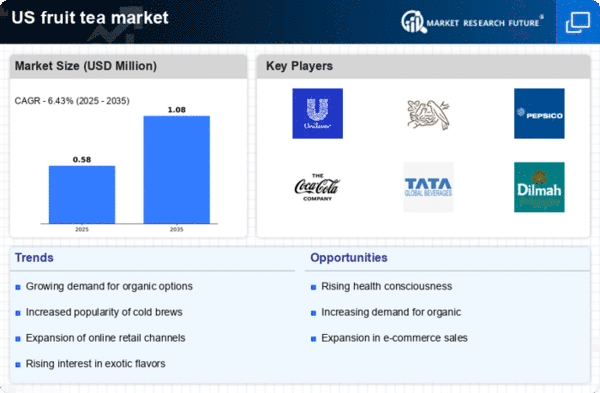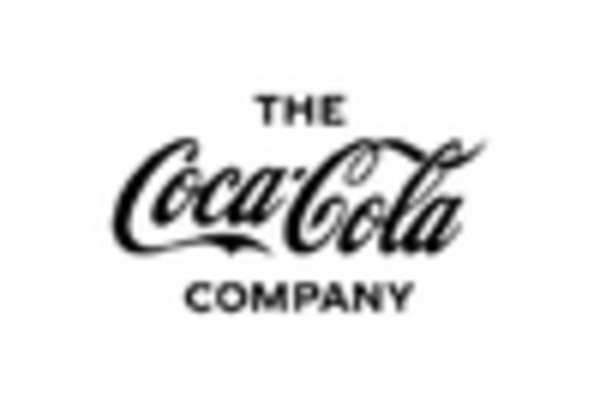Innovative Packaging Solutions
The fruit tea market is benefiting from innovative packaging solutions that appeal to environmentally conscious consumers. Brands are increasingly adopting sustainable packaging materials, which resonate with the values of a significant segment of the market. This shift towards eco-friendly packaging is not only a response to consumer demand but also a strategic move to differentiate products in a competitive landscape. The fruit tea market is thus leveraging this trend to enhance brand loyalty and attract new customers. As sustainability becomes a key purchasing factor, companies that prioritize innovative and responsible packaging are likely to gain a competitive edge.
Expansion of Distribution Channels
The fruit tea market is witnessing an expansion of distribution channels, which is enhancing accessibility for consumers. Retailers are increasingly recognizing the potential of fruit tea and are incorporating it into their product offerings. This includes not only traditional grocery stores but also specialty health food stores and online platforms. The convenience of online shopping has particularly contributed to the growth of the fruit tea market, as consumers can easily explore a wide range of products from the comfort of their homes. This expansion is likely to drive sales, as it allows brands to reach a broader audience and cater to the growing demand for diverse fruit tea options.
Rising Demand for Natural Beverages
The fruit tea market is experiencing a notable increase in demand for natural beverages, driven by a growing consumer preference for healthier options. As individuals become more health-conscious, they are gravitating towards beverages that are perceived as natural and free from artificial additives. This trend is reflected in market data, which indicates that the fruit tea segment has seen a growth rate of approximately 8% annually. Consumers are increasingly seeking alternatives to sugary sodas and artificially flavored drinks, which positions fruit tea as a favorable option. The fruit tea market is thus benefiting from this shift, as brands innovate to offer a variety of flavors that appeal to health-oriented consumers.
Increased Awareness of Health Benefits
The fruit tea market is significantly influenced by the rising awareness of the health benefits associated with fruit-infused beverages. Research suggests that fruit teas are rich in antioxidants, vitamins, and minerals, which contribute to overall well-being. This awareness has led to a surge in consumer interest, with the market projected to reach $2 billion by 2026. The fruit tea market is capitalizing on this trend by promoting the health advantages of their products, thereby attracting a diverse consumer base. As more individuals seek to incorporate functional beverages into their diets, the demand for fruit tea continues to grow, further solidifying its position in the beverage sector.
Growing Popularity of Cold Brew Options
The fruit tea market is experiencing a surge in the popularity of cold brew options, which cater to the evolving preferences of consumers. Cold brew fruit teas offer a refreshing alternative, particularly during warmer months, and are perceived as a more flavorful and less bitter option compared to traditional brewing methods. This trend is reflected in market data, indicating that cold brew beverages are expected to account for a significant share of the fruit tea market in the coming years. As brands innovate to create unique cold brew blends, they are likely to attract a younger demographic seeking trendy and refreshing beverage choices.

















